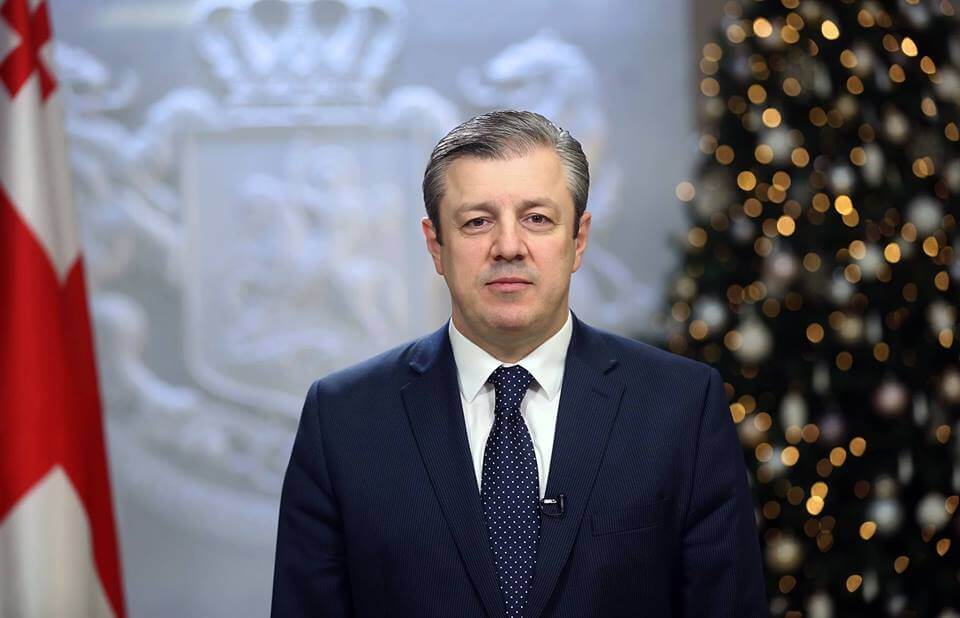Francesco Bagnardi holds a BA degree in Political Science and a MA degree in International relations. His research work focuses on labour and economic sociology, trade unionism, industrial relations, and social movement theories.
His work – “Labour Codes in Georgia: Paradigms in Transition” is available here.
© European.ge
In an old Italian novel, a member of the decaying but powerful, local nobility, looking at the tumultuous revolutionary years of the indolent, apparently immutable Sicilian society of the end of 1800s, comments: ‘everything needs to change, so everything can stay the same’. Everything will change, but the power will stick with those who already have it, despite transitions and revolutions. I could not help but remembering that novel (Il Gattopardo, Tomasi Da Lampedusa) while noticing the renewed activism of the Georgian government in re-establishing closer ties with the private sectors.
Since the first days after his appointment, the newly elected Prime Minister Kvirikashvili stressed the importance of transparent relations between public institutions and societal interest groups while arranging a significative public meeting with the main non-governmental organizations of the country [1]. The Premier even announced the establishment of a Front Office dedicated to the incorporation of civil society’s stances in the policy-making processes [2]. However, a few weeks later, the new governmental leader’s agenda seems already to be focussing on a tighter relation with the business community more than with the broader societal landscape. The government’s priority, as the Prime Minister explained in a public meeting with the business community, is to create new jobs and improve the business climate in order to attract new investments [3]. In a recent public meeting with one of the most vocal and influential interest group of the country, the International Chamber of Commerce in Georgia, Kvirikashvili announced his plan to relaunch the economy through tax liberalization and new investments on infrastructures. A reform of the revenue system, shaped on the Estonian model, will decriminalizing tax crimes, eliminate profit taxes and loosen fiscal monitoring powers [4]. While the business community has welcomed this renewed, friendly, governmental activism – Mr Asly, the ICC Georgia’s chairperson, labelled the Prime minister as ‘the right person in the right place’ [4] – it is debatable whether the proposed policies would be a solid basis for an inclusive development or rather would trigger a more polarized and unequal growth.
The assessment of the business-friendly, hyper-liberal policies is not the object of this short commentary. However, I will try to stress a main contradiction the governmental leadership’s announcements entailed. Indeed, while the effort to reach a more transparent and participated decision-making process can be valuable, it is worth noticing that the blurred concept of civic engagement given by the governmental approach seems to coincide with the involvement of the business community only. Civil society organizations, the no-profit sector and the various NGOs have been only formally met once [5]. On the other hand, trade unions have been consistently ignored even though the labour law, passed in the beginning of the legislature by the Georgian Dream’s votes, institutionalized the Tripartite Social Partnership Commission as the privileged governance tool to incorporate civil society’s and social partners’ contribution in the policy-making process. The consistent refusal to re-activate the tripartite commission, starting a fair consultation process with both business and labour representatives together, is clearly at odds with the reiterated Prime Minister’s pledge of a stronger public engagement of civil society organizations. In other words, it seems that labourers and their natural representatives – the unions – have been excluded by the societal groups that the Premier considers legitimate and representative.
These developments come to the fore even more crucially in the light of the multifaceted industrial conflicts ongoing in the country. In the mining district of Chiatura, one of the main firm of the sector – the Georgian Manganese LLC – announced the interruption of the extraction activities for few months, putting 3,700 workers under threat, without leading public authorities to intervene and activate any conciliatory procedures [6]. At the same time, while the umpteenth worker’s death led the Public Defender to urge the government to carry out quickly the necessary steps to create an effective public labour inspection [7], nor the business representatives neither the PM have showed any will to put this issue on their agenda. Against this background, trade unionism and social movements are exploring new paths of resistance and conflict. The workers of the Tbilisi-based, glass factory ‘JSC Mina’ announced a general strike, as a response to the constant refusal of the employer to discuss and satisfy workers’ request of a collective agreement.
In this context is fair to ask whether the government’s approach can be effective and sustainable in the long run, in a country where job-less growth, absolute lack of labour law’s enforcement and myopic developmental policies have polarized the gains of transition, pauperized the existing industrial and human patrimony and increased precariousness and a widespread feeling of despair and structural injustice. The repetition of past hyper-liberal economic policies and the acceptance of the basic trickle-down theoretical assumptions would put at risk even more Georgia’s social cohesion, while the consistent neglect of liberal trade unions’ demands would turn workers’ economic frustration towards non-liberal and identity-based forms of political expression and organization. Public authorities have the opportunity to balance societal power relations and shape a more inclusive and sustainable development. The reiteration of past policies is a short-sighted, and indeed unjust, strategy for Georgia’s future.
References
- http://georgiatoday.ge/news/2801/Georgian-Prime-Minister-Meets-Opposition-and-Civic-Sector
- http://agenda.ge/news/50637/eng
- http://agenda.ge/news/50600/eng
- http://www.observer.com.ge/en/2016/02/02/%E1%83%91%E1%83%98%E1%83%96%E1%83%9C%E1%83%94%E1%83%A1-%E1%83%92%E1%83%90%E1%83%A0%E1%83%94%E1%83%9B%E1%83%9D%E1%83%A1-%E1%83%92%E1%83%90%E1%83%A1%E1%83%90%E1%83%A3%E1%83%9B%E1%83%AF%E1%83%9D%E1%83%91/
- http://agenda.ge/news/51209/eng
- http://www.industriall-union.org/3700-mine-workers-under-threat-in-georgia



